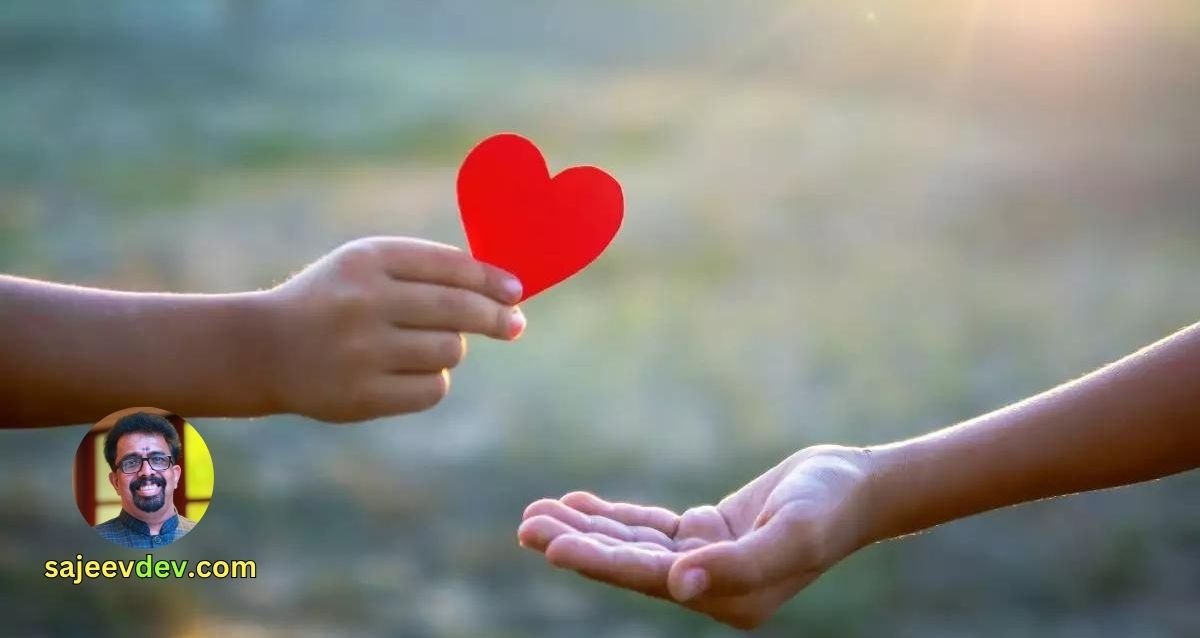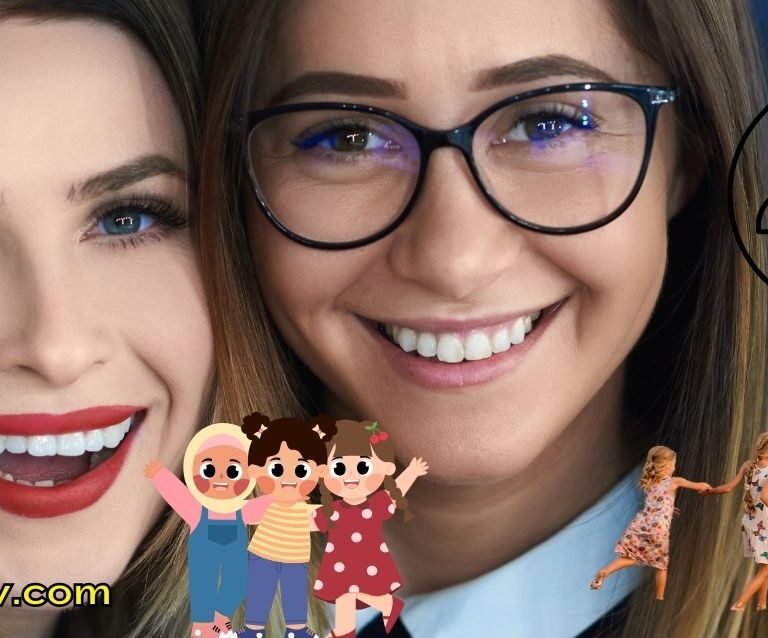The Essence of Pure Love
Pure love is a potent, transformative force that transcends cultural, social, and personal boundaries. It is an unwavering, selfless affection that manifests itself in a myriad of forms, ranging from profound compassion to simple, yet meaningful, acts of kindness. This universal phenomenon holds within it the power to bridge divides and foster genuine connections, even amidst the world’s persistent challenges.
At its core, pure love is characterized by an altruistic heart, a deep empathy that drives individuals to extend warmth and understanding to others, regardless of circumstances. Whether offered as a smiling gesture to a stranger, a thoughtful deed for a neighbor, or unwavering support to a loved one, pure love encapsulates the essence of humanity’s innate goodness. It is this purity that holds the transformative potential to mend the fragmented fabric of our global society.
As we navigate an increasingly divided world, the importance of pure love becomes more evident. The capacity to love purely, detached from self-interest and prejudice, can initiate profound changes, paving the way for healing and reconciliation. This love is not restricted to grand gestures or monumental acts; instead, it thrives in everyday interactions, carving pathways of hope and solidarity in the hearts it touches.
The universality of pure love underscores its relevance across all facets of life and society. By nurturing this love within ourselves and recognizing its manifestations in various forms, we enhance our ability to connect meaningfully and positively influence our surroundings. Pure love, in its truest sense, offers a beacon of hope, illuminating pathways to unity, peace, and collective well-being.
In essence, pure love serves as a powerful antidote to the strife and division that pervade our world. By embracing and cultivating this profound force, humanity can transcend its differences and journey toward a more harmonious and compassionate existence.
Love Transcending Boundaries and Cultures
Throughout history, love has emerged as a universal connector, fostering relations and understanding beyond cultural, religious, and geographical divides. In the grand tapestry of human interactions, love serves as the thread binding disparate communities together, demonstrating our shared humanity.
Historical accounts provide numerous examples of love transcending cultures. The story of Antony and Cleopatra is not just a tale of passion but a political union that attempted to meld Roman and Egyptian cultures. Similarly, in the annals of medieval history, the union of Ferdinand of Aragon and Isabella of Castile unified Spain, laying the foundation for a cohesive and robust nation-state. These instances illustrate how alliances built on mutual care and respect can harmonize differing backgrounds, fostering collaborative growth.
In modern times, the power of love is equally evident. The civil rights movements globally have been fueled by an overarching love for humanity and a yearning for equality. Figures like Martin Luther King Jr. exemplified this ethos, advocating for civil rights through messages of compassion and unwavering love, bridging racial and socio-economic gaps. His famous “I Have a Dream” speech is a testament to love’s capability to transcend societal barriers and inspire collective action for justice and unity.
Similarly, the global response to humanitarian crises showcases love’s unifying force. International aid and volunteer efforts emerge from a profound sense of empathy and love for fellow human beings. Whether in the aftermath of natural disasters or in ongoing conflicts, this collective support underscores the role of love in promoting global solidarity and human welfare. The cooperative global efforts during the COVID-19 pandemic further highlight this, as countries and individuals came together to provide aid, share knowledge, and develop solutions collectively.
At a personal level, love also acts as a bridge in multicultural relationships. Intercultural marriages and friendships exemplify how love can dissolve prejudices and foster a mutual appreciation of diverse traditions and values. By embracing each other’s differences, love creates a new, enriched narrative that binds people together irrespective of their origins.
Ultimately, as we navigate an increasingly globalized world, recognizing and harnessing the transformative power of pure love in overcoming divisions can pave the way for a more interconnected and harmonious global society.
Healing Emotional and Spiritual Wounds
The transformative power of pure love extends beyond mere comfort, playing a pivotal role in healing emotional and spiritual wounds. When we embrace love as a guiding principle, we can initiate profound and lasting changes within ourselves and our communities. Love, in its purest form, acts as a balm for the heart and soul, alleviating pain, mitigating psychological distress, and fostering an environment of mutual understanding and compassion.
Many stories bear witness to the healing power of love. One such story is that of John and Lucy, a couple who endured the tragic loss of their young daughter. Overwhelmed by grief, they struggled to find solace. However, their community’s unwavering support became a cornerstone of their healing journey. Neighbors provided meals, friends offered ears to listen, and the local church organized support circles. This collective act of love helped John and Lucy navigate their sorrow, illustrating how communal love can provide the strength needed to overcome emotional trauma.
Moreover, on a broader scale, communities ravaged by conflict have found paths to reconciliation and healing through acts of love and compassion. A powerful example is seen in Rwanda, where after the 1994 genocide, various programs aimed at healing the community were implemented. Initiatives such as group counseling sessions and community-building projects promoted dialogue, understanding, and forgiveness rooted in love. These endeavors have gradually mended the social fabric torn apart by violence, showcasing the significance of love in overcoming spiritual and psychological wounds.
Through such case studies, it becomes evident that love is not just an emotion but a transformative force that can heal deeply seated hurts. Whether it is providing emotional support in times of personal loss or playing a crucial role in the rehabilitation of communities affected by conflict, acts of love and compassion have shown remarkable efficacy in healing the wounds of the heart and soul. As we navigate a world often marred by division and pain, embracing love may well be the healing force needed to foster a more compassionate and united global community.
Love as an Antidote to Anger and Hatred
In the complex web of human emotions, anger and hatred often stand as significant forces that fuel discord and division. However, love, when channelled effectively, serves as a powerful counterbalance to these negative emotions. The contrast between love and negative feelings like anger and hatred is stark: where anger seeks to destroy, love aims to heal; where hatred seeks to divide, love strives to unite.
Love has the unique capacity to diffuse conflicts and reconcile differences, thereby fostering an atmosphere of understanding and forgiveness. For instance, in moments of intense personal conflict, expressing love and empathy can deflate aggression and open pathways for meaningful dialogue. Similarly, on a larger scale, communities that actively promote love and compassion tend to experience lower levels of violence and social fragmentation. Case in point: initiatives that bring together diverse groups for shared projects often result in reduced prejudice and enhanced coexistence.
Real-world examples further emphasize love’s ability to break cycles of negativity. Consider the Truth and Reconciliation Commission in South Africa, which sought to heal the wounds of apartheid through love, forgiveness, and understanding rather than retribution and punishment. This remarkable process showcased how embracing love over hatred can lead to profound societal transformation. Another example is the work of organizations like Amnesty International and Doctors Without Borders that help people across cultural and political divides, driven by the principle of universal love and empathy.
In essence, the transformative power of love extends beyond mere emotional comfort; it acts as a strategic tool for social harmony and individualized healing. When employed as a means to counteract anger and hatred, love not only alleviates immediate tension but also lays the groundwork for long-term trust and reconciliation. Optimizing our responses to conflicts by choosing love over anger can create ripple effects that contribute significantly to healing a divided world.
Love, in its truest form, is not a passive sentiment but an active, compelling force that drives individuals toward impactful and transformative actions. The potency of pure love lies in its ability to transcend thoughts and emotions, calling us to uplift and heal the world through concrete actions. Volunteering stands as one of the most direct manifestations of active love. By dedicating time and effort to causes that benefit others, individuals can significantly contribute to community well-being and societal progress. Acts of service, whether structured through organizations or performed independently, demonstrate a commitment to enhancing the lives of others.
Standing up for justice is another crucial avenue where love becomes an active force. In a world fraught with inequalities and injustices, love compels individuals to take a stand against discriminatory practices and advocate for the rights and dignity of every person. Participation in peaceful protests, supporting marginalized communities, and raising awareness about social issues are all ways through which love materializes as a powerful agent for positive change. When we champion justice, we embody love by ensuring that everyone is treated with fairness and respect.
Supporting those in need encompasses providing both physical and emotional assistance. This ranges from offering financial help to those facing hardship, to lending a listening ear and emotional support to individuals navigating personal struggles. Love in action is reflected in our willingness to go above and beyond for others, recognizing and responding to their needs with empathy and kindness. Simple gestures—whether a comforting word, a shared meal, or a helping hand—can have profound impacts.
Ultimately, love demands commitment and effort. It calls us to move beyond complacency and take deliberate steps towards making the world a better place. Whether through volunteering, standing up for justice, or supporting those in need, love as an active force reflects our dedication to fostering a more compassionate, just, and unified world. In these actions, love reveals its transformative power, capable of healing divisions and nurturing collective well-being.
The Ripple Effect: Creating Positive Change
The ripple effect embodies the principle that small, seemingly insignificant acts of love and kindness can result in substantial, far-reaching changes throughout society. It is often said that a single drop can create a vast ripple across a quiet pond, and similarly, individual acts of compassion can spark larger movements that transform communities and even the world. The transformative power of pure love is profoundly visible when we observe how minor, selfless deeds blossom into significant societal impacts.
Consider the story of Clara Brown, a former slave who, after gaining her freedom, dedicated her life to reuniting families separated by slavery. Her acts of love and determination not only reunited many families but also provided hope and a sense of community to countless others. Brown’s efforts exemplify how a single individual’s commitment to acts of kindness and love can create a ripple effect that spans generations.
Another compelling example is that of Rachel Beckwith, a nine-year-old girl who chose to forgo birthday presents and instead raise funds to provide clean water to those in need. Although Rachel tragically lost her life in a car accident, her initial act of compassion generated an overwhelming response. Thousands of people around the world were inspired by her story and contributed over a million dollars towards clean water projects. Rachel’s small act of love and selflessness thus created a monumental change, impacting numerous lives globally.
The ripple effect of pure love isn’t limited to historical anecdotes. Modern social movements also illustrate this phenomenon. Movements such as “Pay It Forward” and “Random Acts of Kindness” began with individual efforts but rapidly evolved into global initiatives, encouraging millions to participate in small acts of kindness. These movements demonstrate how the collective power of individual acts can foster a more loving, compassionate world.
In essence, the ripple effect shows us that no act of love is too small to make a difference. Through consistent, daily acts of kindness, we can contribute to creating a more unified and harmonious world, one loving gesture at a time.
Overcoming Division with Love
In a world increasingly characterized by division and conflict, the power of pure love offers a potent remedy for healing and unity. Love, with its transcendental qualities, can bridge divides and foster reconciliation on multiple levels—from personal relationships to broader societal and global contexts. By prioritizing compassion, empathy, and genuine connection, we can address the root causes of discord and build a more harmonious world.
At the personal level, love has the capacity to mend fractured relationships. Whether it’s familial ties strained by disagreements or friendships faltering under the weight of misunderstandings, love can act as a soothing balm. By choosing to forgive, listen, and extend kindness, individuals can rebuild trust and strengthen bonds. Countless stories illustrate how love has reunited estranged relatives or repaired broken friendships, demonstrating that the act of loving can transcend past wrongs and pave the way for renewed connections.
Communities, too, can benefit immensely from the unifying force of love. In neighborhoods marred by social tensions or cultural clashes, initiatives grounded in loving kindness can bring diverse groups together. Public events that celebrate multiculturalism or community service projects aimed at helping the less fortunate can foster a sense of solidarity. By focusing on the collective good and appreciating each individual’s inherent worth, communities can transform from fragmented entities into cohesive and supportive networks.
On a global scale, love’s influence is equally transformative. International conflicts often stem from deeply rooted prejudices and historically entrenched animosities. Yet, stories of reconciliation—such as former enemies who become allies, or nations once divided by war forming peaceful alliances—highlight the powerful potential of love to overcome even the most entrenched divisions. Through diplomatic efforts rooted in mutual respect and empathy, nations can work towards more peaceful and cooperative international relations.
Ultimately, the capacity for love to heal and unite is boundless. By choosing to prioritize love over fear or hatred, we can create ripples of positive change that extend from our immediate circles to the furthest reaches of the globe. The transformative power of pure love lies in its ability to see beyond differences, celebrate common humanity, and inspire a collective journey towards unity and peace.
Choosing Love in Daily Life
The exploration of pure love throughout this blog post underscores its extraordinary capacity to heal and unite a divided world. Through understanding the foundational principles of unconditional love, we recognize that love transcends all barriers, fostering connections that surpass superficial differences. Pure love embodies empathy, compassion, and kindness, forming a universal language that bridges gaps and nurtures community.
Key points discussed highlight how love can dismantle prejudice, mend relationships, and engender a sense of global solidarity. Pure love is not constrained by conditions or expectations but flourishes when given freely and wholeheartedly. This transformative force of love can address societal challenges, such as inequality, injustice, and conflict, by promoting understanding and forgiveness.
Incorporating love into our daily lives requires deliberate actions and attitudes. Simple gestures of kindness, active listening, and genuine concern for others’ well-being are practical steps we can all take. These actions, while seemingly small, accumulate to create a culture imbued with love and inclusivity. By choosing love, we empower ourselves and others to rise above divisiveness and foster a more harmonious existence.
The collective impact of widespread, unconditional love is profound. When communities collectively prioritize love, this positive energy radiates outward, influencing broader societal structures. A world led by love values cooperation over competition, and unity over division. We each hold the power to contribute to this vision; our individual choices, when multiplied by millions, pave the way for a more compassionate and just world.
Love remains the most potent force for healing and unity. By embracing pure love in our daily interactions and decisions, we can collectively build a world where divisions are overshadowed by collective empathy and solidarity. Let us each commit to this journey, knowing that every act of love propels us closer to a truly united and healed global community.









